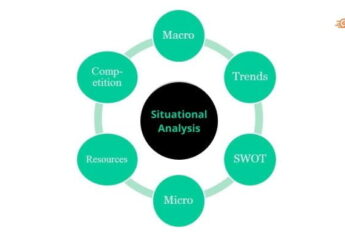First Dell Boomi Project – What You Should Know Before Starting?
by Abdul Aziz Mondal Business Intelligence Published on: 17 February 2024 Last Updated on: 06 March 2024

In the era of digital transformation, integrating various business systems seamlessly is crucial for the efficiency and growth of any organization. One of the leading solutions in this domain is Dell Boomi, a robust integration platform that caters to the diverse and complex needs of modern businesses. Embarking on your first Dell Boomi project can be a significant step forward for your company. However, there are essential aspects to consider before diving in. This article aims to provide an insightful overview of what you should know before starting your first Dell Boomi project.
Understanding Dell Boomi

Dell Boomi is an Integration Platform as a Service (iPaaS) that enables businesses to connect different applications, both cloud-based and on-premises, without the need for extensive coding. The platform facilitates the creation of automated workflows and data synchronization across various systems. Its intuitive interface and pre-built connectors make it a preferred choice for businesses looking to enhance their integration capabilities.
Expanding on the First Dell Boomi Project: Key Considerations for a Successful Implementation
Planning Your Project
The success of a Dell Boomi project heavily relies on meticulous planning and analysis. This stage should involve a comprehensive needs assessment where you analyze your current business processes, identify integration needs, and define specific goals. It’s essential to map out the data flow and understand how different systems will communicate with each other. This planning phase is crucial in avoiding scope creep and ensures that the project stays aligned with the business objectives. Assessing the current IT infrastructure and determining how Dell Boomi can complement or enhance existing processes is also critical.
Choosing The Right Implementation Model
Dell Boomi offers flexibility in implementation. Businesses can opt for a fully cloud-based model, an on-premise solution, or a hybrid approach. The choice depends on various factors like data sensitivity, compliance requirements, and existing IT infrastructure. It’s crucial to evaluate these factors thoroughly to select the most suitable model for your organization.
One of the significant advantages of Dell Boom is its customizable nature. The platform allows for extensive customization to meet specific business requirements. However, this also means that businesses need to carefully consider how these customizations will be implemented. This involves understanding the default capabilities of the platform and identifying areas where custom scripts or APIs are needed.
Considering Professional Services
For many organizations, considering professional Dell Boomi consulting services with project’s integrations can be a game-changer. These services provide expert guidance, from planning and design to implementation and maintenance. Leveraging professional consultants can help avoid common pitfalls and ensure that the project aligns with business goals.
Training And Skill Development

Understanding Dell Boomi requires a certain level of expertise. Providing adequate training to your team is essential. This not only includes the technical staff who will be handling the integrations but also the end-users who will interact with the new systems.
Integration Complexity And Data Management:
As businesses often use a multitude of applications, the complexity of integration can vary significantly. Dell Boom’s ability to handle complex integrations is a key benefit, but it also requires a thorough understanding of data structures, hierarchies, and dependencies. Proper data management practices need to be established to ensure data integrity and quality throughout the integration process.
Security And Compliance
When dealing with integrations, especially those involving sensitive data, security, and compliance cannot be overlooked. Ensuring that your Dell Boomi project adheres to industry standards and regulatory requirements is paramount. This involves evaluating data handling, storage, and transfer processes within the integration platform.
Scalability And Future Growth

Consider the scalability of your Dell Boomi project. As your business grows, your integration needs will evolve. The platform should be able to accommodate increasing data volumes and additional integrations without significant overhauls.
Robust Testing Strategy
A rigorous testing strategy is vital for the success of a Dell Boomi project. This should include unit testing, system testing, integration testing, and user acceptance testing (UAT). Testing must be comprehensive to ensure that all components work harmoniously and that data is accurately transferred across systems without loss or corruption.
Effective Change Management

Implementing a new integration platform like Dell Boomi often requires significant changes in existing processes and workflows. Effective change management is essential to ensure a smooth transition. This involves communicating the changes to all stakeholders, training employees, and providing support during and after the implementation.
Ongoing Maintenance And Support
Post-implementation, ongoing maintenance, and support are crucial to address any emerging issues quickly. Regular monitoring and updates are needed to ensure the integration platform continues to function optimally. Additionally, having a support plan in place, whether it’s an in-house team or outsourced support, is essential for resolving issues and making necessary adjustments.
Leveraging Analytics And Reporting
Dell Boomi offers robust analytics and reporting capabilities. Leveraging these features can provide valuable insights into the performance of your integrations. Regularly reviewing these reports can help identify bottlenecks, inefficiencies, and areas for improvement.
Budgeting And Resource Allocation

Finally, careful budgeting and resource allocation are critical. It’s essential to consider not only the initial costs of the software and implementation but also the ongoing expenses related to maintenance, updates, and training. Allocating sufficient resources, both financial and human, is key to the project’s success.
Summary
Embarking on a Dell Boomi project is a significant step toward advancing your business’s digital integration capabilities. Understanding the platform, planning meticulously, choosing the right implementation model, considering professional consulting services, focusing on training, and ensuring security and scalability are key to a successful project.
With these considerations in mind, your first Dell Boomi project can set a solid foundation for seamless and efficient business integrations. By focusing on these key areas, organizations can leverage Dell Boom to its full potential, ensuring efficient and seamless integration that supports business growth and digital transformation.
Read Also:



































































































